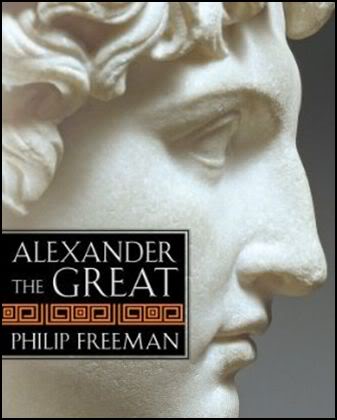The common Macedonian soldier was proud not to be Greek
"The sommon Macedonian soldier was proud not to be a Greek", this quote comes from the work 'Alexander the Great' by Philip Freeman.
Even in the introduction on page 5, Freeman invalidates a number of newfangled myths that arose about the language of the Macedonians in the course of the Greek struggle for the inheritance of Macedonia: The language of the Macedonians differed from the Greeks, the Macedonians from the Upper Regions and according to Freeman, the "Lowland farmers" spoke a common language that separated them from the Greeks in the south. As a result, they are to be seen as an independent people.
So we read:
Though the pastoral Macedonians of the mountains differed from the lowland farmers in many ways, they shared a common language that defined them as a single people - and separated them from the Greeks to the south. The Macedonian tongue was so far removed from the Greek of Athens or Sparta that it may as well have been a different language entirely.
Freeman then turns to an example to illustrate this difference, from the time of Alexander the Great, on his Persian campaign:
Years after his birth, when Alexander was in central Asia, he grew so angry at a drinking party one night that he switched from his usual Greek speech to yell at his guards in Macedonian.
This quote makes it clear that Macedonians were not monolingual. At least the upper class, this is more than clear from the following quote:
The Macedonian nobility may have studied Greek philosophy and recite the poetry of Homer, but the common Macedonian soldier was proud not to be Greek
Source: Alexander The Great by Philip Freeman, p. 5






